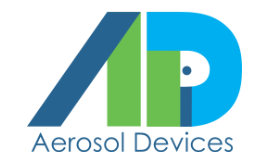Small Business Innovation Research Program Provides Seed Funding for R&D
Fort Collins, CO, Aug 8, 2017 – Aerosol Devices Inc. has been awarded a National Science Foundation (NSF) Small Business Technology Transfer (STTR) grant for $225,000 to conduct research and development (R&D) work on new devices for the rapid and accurate characterization of airborne microbes.
An improved ability to characterize the microbiology of indoor aerosols has many important engineering and public health benefits for urban society. This includes a vastly improved ability to monitor bioaerosols that could pose a health threat in water-damaged buildings; in health care settings; in plane/rail/bus transportation centers; and other high-density public venues. Emerging aerosol technology will be optimized and deployed in portable instrumentation that reports the identity, distribution and abundance of airborne microorganisms. These “next generation” instruments provide an innovative, unobtrusive and practical method for surveying the indoor air we breathe every day, in near real-time.
“The National Science Foundation supports small businesses with the most innovative, cutting-edge ideas that have the potential to become great commercial successes and make huge societal impacts,” said Barry Johnson, Director of the NSF’s Division of Industrial Innovation and Partnerships. “We hope that this seed funding will spark solutions to some of the most important challenges of our time across all areas of science and technology.”
“We are excited to be working with our academic partner, Prof. Mark Hernandez, University of Colorado at Boulder, to advance this new sampling technology for airborne bacterial cells and fungal spores that could pose a significant health risk in indoor environments,” said Pat Keady, President of Aerosol Devices.
Once a small business is awarded a Phase I SBIR/STTR grant (up to $225,000), it becomes eligible to apply for a Phase II grant (up to $750,000). Small businesses with Phase II grants are eligible to receive up to $500,000 in additional matching funds with qualifying third-party investment or sales.
NSF accepts Phase I proposals from small businesses twice annually in June and December. Small businesses with innovative science and technology solutions, and commercial potential are encouraged to apply. All proposals submitted to the NSF SBIR/STTR program undergo a rigorous merit-based review process.
To learn more about the NSF SBIR/STTR program, visit: www.nsf.gov/SBIR. For information about bioaerosol sampling technology from Aerosol Devices Inc., visit: https://aerosoldevices.com .
About the National Science Foundation’s Small Business Programs: The National Science Foundation (NSF) awards nearly $190 million annually to startups and small businesses through the Small Business Innovation Research (SBIR)/Small Business Technology Transfer (STTR) program, transforming scientific discovery into products and services with commercial and societal impact. The non-dilutive grants support research and development (R&D) across almost all areas of science and technology helping companies de-risk technology for commercial success. The NSF is an independent federal agency with a budget of about $7 billion that supports fundamental research and education across all fields of science and engineering.




